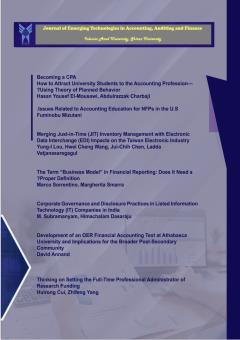Investigating the Moderating Role of Time Budget Pressure in the Relationship Between Professional Commitment and Underreporting of Audit Time
Subject Areas : • Emerging technology in the field of Accounting and its futureRamin Zeraatgari 1 * , Meysam Lakzaee 2
1 - دانشیار، گروه حسابداری، دانشگاه سیستان و بلوچستان، سیستان و بلوچستان، ایران.
2 - Ph.D. student in Human Resources Management, Department of Management, University of Sistan and Baluchestan- Iran.
Keywords: Time Budget Pressure, Professional Commitment, Underreporting of Audit Time. ,
Abstract :
Objectives: This study aims to examine the moderating role of time budget pressure in the relationship between professional commitment and underreporting of audit time.
Methodology/Design/Approach: The research employs a descriptive-correlational design and is classified as a cross-sectional survey. Data were collected via a questionnaire. The statistical population comprises all employed auditors, with a sample size of 243 individuals. Hypotheses were tested using regression analysis with SPSS software version 22.
Findings: The results reveal a significant negative relationship between professional commitment and underreporting of audit time. Additionally, time budget pressure moderates this relationship, influencing the extent to which professional commitment affects underreporting.
Innovation: This study contributes to the auditing literature by highlighting the interactive effect of time budget pressure on the link between auditors’ professional commitment and their reporting behavior. The findings provide practical insights for audit firms seeking to manage audit quality and ethical practices under budget constraints.
Akers, M. D., Horngren, C. T., & Eaton, T. V. (1998). Underreporting chargeable time: A continuing problem for public accounting firms. Journal of Applied Business Research, 15(1), 13–20.
Almer, E., Higgs, J., & Hooks, K. (2005). A theoretical framework of the relationship between public accounting firms and their auditors. Behavioral Research in Accounting, 17(1), 1–22.
Anderson-Gough, F., Grey, C., & Robson, K. (2001). Tests of time: Organizational time-reckoning and the making of accountants in two multi-national accounting firms. Accounting, Organizations and Society, 26(2), 99–122.
Anreas. (2016). Interaction between time budget pressure and professional commitment toward underreporting of time behaviour. Procedia - Social and Behavioural Sciences, 219, 91–98.
Aranya, N., & Ferris, K. R. (1984). A reexamination of accountants’ organizational-professional conflict. The Accounting Review, 59(1), 1–15.
Aranya, N., Pollock, J., & Amernic, J. (1981). An examination of professional commitment in public accounting. Accounting, Organizations and Society, 6(4), 271–280.
Buchheit, S., Pasewark, W. R., & Strawser, J. R. (2003). No need to compromise: Evidence of public accounting’s changing culture regarding budgetary performance. Journal of Business Ethics, 42(2), 151–163.
Church, P. H. (2014). Assimilation of new hires in public accounting. Current Issues in Auditing, 8(2), A25–A34.
Donnelly, D. P., Quirin, J. J., & O’Bryan, D. (2003). Auditor acceptance of dysfunctional audit behavior: An explanatory model using auditors’ personal characteristics. Behavioral Research in Accounting, 15(1), 87–110.
Elias, R. Z. (2006). The impact of professional commitment and anticipatory socialization on accounting students’ ethical orientation. Journal of Business Ethics, 68(1), 83–90.
Herda, D. N., & Martin, K. A. (2016). The effects of auditor experience and professional commitment on acceptance of underreporting time: A moderated mediation analysis. Current Issues in Auditing, 10(2), A14–A27.
Jeffrey, C., & Weatherholt, N. (1996). Ethical development, professional commitment, and rule observance attitudes: A study of CPAs and corporate accountants. Behavioral Research in Accounting, 8, 8–31.
Kelley, T., & Seiler, R. E. (1982). Auditor stress and time budgets. The CPA Journal, 52(12), 24–34.
Lightner, S., Adams, S., & Lightner, K. (1982). The influence of situation, ethical, and expectancy theory variables on accountants’ underreporting behavior. Auditing: A Journal of Practice and Theory, 2, 1–12.
McNair, C. (1991). Proper compromises: The management control dilemma in public accounting and its impact on auditor behavior. Accounting, Organizations and Society, 16(7), 635–653.
Otley, D., & Pierce, B. (1996a). Auditor time budget pressure: Consequences and antecedents. Accounting, Auditing and Accountability, 9(1), 31–58.
Otley, D., & Pierce, B. (1996b). The operation of control systems in large audit firms. Auditing: A Journal of Practice and Theory, 15(2), 65–84.
Pickerd, J. S., Summers, S. L., & Wood, D. A. (2015). An examination of how entry-level staff auditors respond to tone at the top vis-à-vis tone at the bottom. Behavioral Research in Accounting, 27(1), 79–98.
Ponemon, L. (1992). Auditor underreporting of time and moral reasoning: An experimental lab study. Contemporary Accounting Research, 9(1), 171–189.
Rhode, J. G. (1978). Independent auditor’s work environment: A survey (Commission on Auditors Responsibilities, Research Study No. 4). New York, NY: American Institute of Certified Public Accountants.
Rudd, N. (Trans.). (1992). The satires. Oxford, UK: Oxford University Press.
Shaub, M. K., Finn, D. N., & Munter, P. (1993). The effects of auditors’ ethical orientation on commitment and ethical sensitivity. Behavioral Research in Accounting, 5(1), 145–169.
Smith, D., & Hall, M. (2008). An empirical examination of a three-component model of professional commitment among public accountants. Behavioral Research in Accounting, 20(1), 75–92.
Smith, W. R., & Hutton, M. R. (2011). Underreporting time: An analysis of current tax practice. Journal of Applied Business Research, 11(1), 39–45.
Stefaniak, C., & Robertson, J. C. (2010). When auditors err: How mistake significance and superiors’ historical reactions influence auditors’ likelihood to admit a mistake. International Journal of Auditing, 14(1), 41–55.
Suddaby, R., Gendron, Y., & Lam, H. (2009). The organizational context of professionalism in accounting. Accounting, Organizations and Society, 34(3), 409–427.
Sweeney, B., & Pierce, B. (2006). Good hours, bad hours, and auditors’ defense mechanisms in audit firms. Accounting, Auditing & Accountability Journal, 19(6), 858–892.
Taylor, E. Z., & Curtis, M. B. (2010). An examination of the layers of workplace influences in ethical judgments: Whistleblowing likelihood and perseverance in public accounting. Journal of Business Ethics, 93(1), 21–37.

